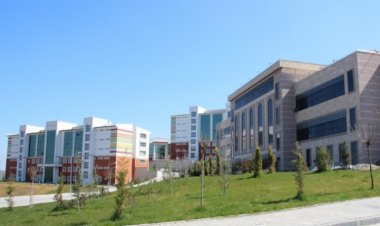KURUM BAKIMI ALTINDAKİ ERGENLERLE İLETİŞİM
KURUM BAKIMI ALTINDAKİ ERGENLERLE İLETİŞİM Öngören, Bülent; Aydemir, İshak Adolescence can be defined as the period of the most stormy and conflicting experiences of human life. In this period, the individual is in a significant change and development in terms of physiological, social, cognitive, spiritual, moral, emotional, sexual, behavioral and relational aspects. While multidimensional changes provide advantages for adolescents, they also bring some disadvantages. Adolescents' bodily changes increase, conflicts related to positive or negative perceptions about body image and the potential to take risks increase, their level of engagement in conflicting interactions, experiencing intrapsychic and interpersonal conflicts, being more questioning, and being more fragile are increasing. It is also possible for adolescents under institutional care to experience conflicting interactions with role model care staff or the institutional structure. In this process, they may exhibit positive and negative social and problematic behaviors. Adolescents in institutional care may show maladaptive behaviors such as peer bullying, depression, substance use, school dropout or truancy, not obeying the rules, and not fulfilling their individual responsibilities. In this process, communication with adolescents is important. The use of effective communication skills by institutional staff working with adolescents helps them cope with these conflicting interactions. In this study, the difficulties in controlling the mood of the young people who experience emotional confusion during adolescence and their problems in expressing them due to the fact that they are under institutional care, the communication processes between the staff of the institution serving the youth living with these problems and the communication processes between both groups were examined. In addition, the study also aimed to address effective communication skills for staff working with adolescents under institutional care.

KURUM BAKIMI ALTINDAKİ ERGENLERLE İLETİŞİM Öngören, Bülent; Aydemir, İshak Adolescence can be defined as the period of the most stormy and conflicting experiences of human life. In this period, the individual is in a significant change and development in terms of physiological, social, cognitive, spiritual, moral, emotional, sexual, behavioral and relational aspects. While multidimensional changes provide advantages for adolescents, they also bring some disadvantages. Adolescents' bodily changes increase, conflicts related to positive or negative perceptions about body image and the potential to take risks increase, their level of engagement in conflicting interactions, experiencing intrapsychic and interpersonal conflicts, being more questioning, and being more fragile are increasing. It is also possible for adolescents under institutional care to experience conflicting interactions with role model care staff or the institutional structure. In this process, they may exhibit positive and negative social and problematic behaviors. Adolescents in institutional care may show maladaptive behaviors such as peer bullying, depression, substance use, school dropout or truancy, not obeying the rules, and not fulfilling their individual responsibilities. In this process, communication with adolescents is important. The use of effective communication skills by institutional staff working with adolescents helps them cope with these conflicting interactions. In this study, the difficulties in controlling the mood of the young people who experience emotional confusion during adolescence and their problems in expressing them due to the fact that they are under institutional care, the communication processes between the staff of the institution serving the youth living with these problems and the communication processes between both groups were examined. In addition, the study also aimed to address effective communication skills for staff working with adolescents under institutional care.

 Bilgi
Bilgi 














